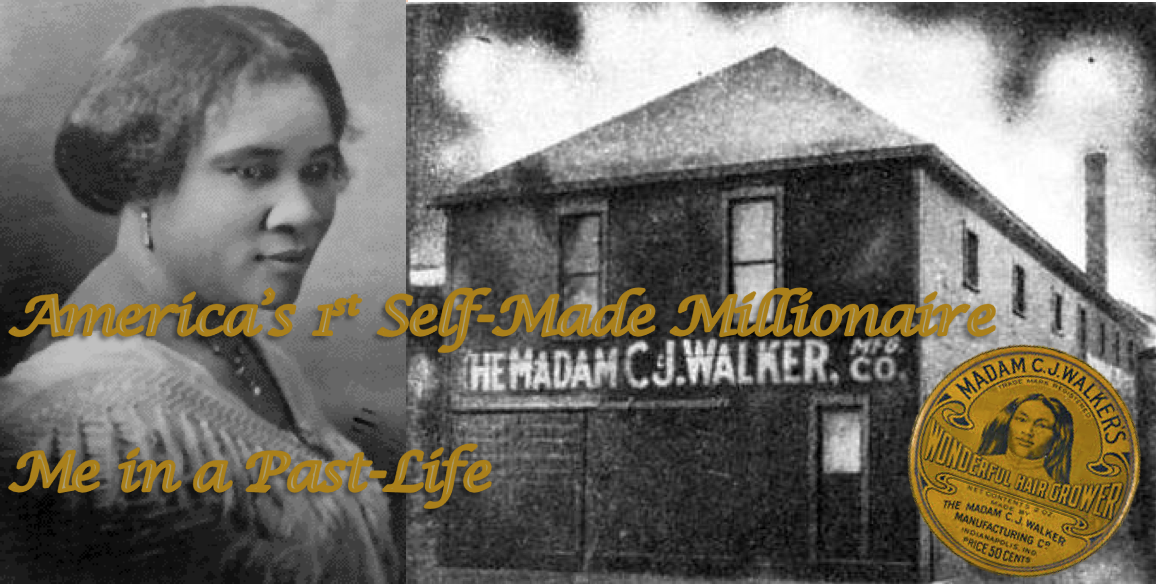
Black hair is big business, Madam C.J. Walker’s realization of this to cater to the black communities’ hair care needs made her America’s first female self-made millionaire. Walker is one of my favorite entrepreneurs because she specialized in the field of Black hair care. During the time that she was growing her business, Walker saw a lack of products that catered to Black hair. When I moved to Washington state I saw the same problem, an extreme lack of choices of hair salons and stylists that offer Black hair styling options. Like Walker did in the early 1900s, I found myself filling that need. Originally being from Detroit, I’d been doing my own hair since high school. Where I’m from everyone knows how to do hair, there’s a beauty supply store on every corner, and finding a hairstylist is easier than finding a doctor. I learned how to do hair by just watching others and going to the beauty supply store was a fun pastime for me. When I moved to Seattle, I had no problem with getting my hair done, because I’d do it myself. Women began asking me who styled my hair and when I told them I do myself I started to get clients. After graduation I made business cards and set up a hair studio in a work lofts building just outside of the city. I’ve had hundreds of clients since first opening the shop. Working in the salon has given me the income and schedule to do the things I love to do, serving women across the Pacific Northwest and throughout this entire process Madam C. J. Walker has been my historic inspiration.
Walker’s story is powerful because she relates to many Black women, a single mother focused on doing what she can to provide for her children, but her story shows the economic success one can have when we choose to serve the needs of our community rather than allowing someone else to come in, take from our community, and leave. This is a trend all too familiar in the Black areas where businesses are all over our neighborhoods, from gas stations to beauty supply stores, yet none of them are owned by us. However, one of the most stable fields of Black business is hair care and hair styling, our barbers and beauticians usually look like us. This is because we wouldn’t trust any other race of person (without our hair type) to maintain our hair. Madam C.J. Walker was the women who introduced this way of thinking about hair care into our community. Her business thrived off of the idea that no one knows our hair and it’s needs like us because no one else has this type of hair texture or our specific hair needs.
Walker, born Sarah Breedlove, was widowed at the young age of 20. After losing her first husband she worked as a laundress to provide for herself and her children. After noticing she had a problem with hair loss, while looking for solutions she developed her own treatment, the “Walker System”. Although she’s widely known for the infamous hot comb (my mother owns one that she’d use to straighten my hair every morning) she also had handmade products that she sold directly to Black women door to door. Walker’s second husband, Charles Joseph Walker, was a newspaper advertising salesman who helped her market her business. As her business grew she was able to hire more employees to sell products door to door. She competed with white owned hair product companies arguing that her products catered to the special health needs of Black people. She revolutionized beauty culture in a way that continues to have an effect on Black hair care and our beauty products today.
The story of Madam C.J. Walker, a young Black woman and entrepreneur is an inspirational one for me. Her story proves that regardless of our circumstances we can tap into our gifts and passions in order to make those into a lucrative career. It is important to recognize how Walker was able to make her business legitimate in competition with other larger white owned hair care brands. She was forced to differentiate herself and depend on her community to find the value in her products. It’s important that we continue to look for the value in and support our Black owned businesses today. We need to take back the Black hair care business. It’s time to be more conscious of what companies we are funding and who we are supporting with our money. For example, my hair provider is a Black owned hair company. Black women we have the power to revolutionize any field where we spend our money. Black women, our ideas and stories are not only a gift to each other but they enrich all people.
Happy Birthday Sandra Bland, rest in power

